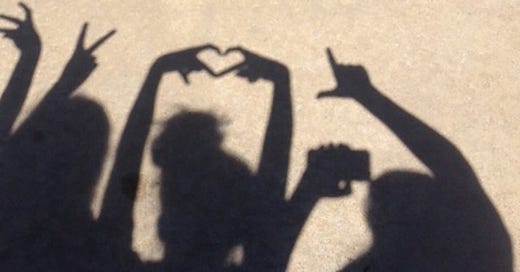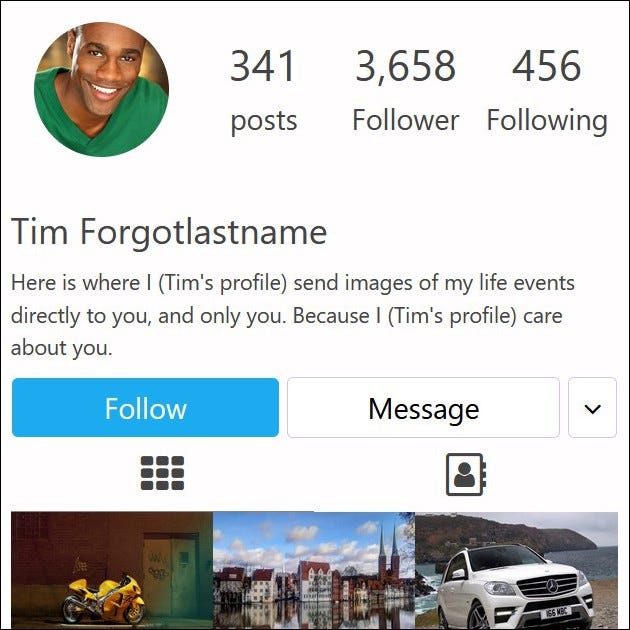It’s become a cliche when discussing the negative emotions associated with social media use, to say that the way people present themselves on these platforms isn’t really the whole picture of who they are. When feelings of inadequacy arise from too much use, the usual consolation goes something like: “What you’re seeing the best parts of someone and comparing it to your whole self. Everyone has good and bad days, you’re just seeing their good days and comparing it to all of your days, both good and bad ones.”
This is nice advice, and definitely something to keep in mind when scrolling through Facebook, Instagram, TikTok, and other social media that focus primarily on connecting friends and colleagues who already have at least passing familiarity with each other in real life (Twitter and Reddit have slightly different methods to perpetuate a cycle of negative emotions).
A growing number of people recognize the downsides to regular social media use, however, the conversation about quitting social media usually goes something like:
“Ugh, I’m so sick of Instagram. It’s so fake and I feel worse after looking at it.”
“Nobody’s forcing you to be there, you know. Yet I notice you spend considerable time using. Why not simply delete your account if it bothers you so much?”
“The thing is- I have family and friends on there that I can’t afford to lose touch with. This is the only relationship I have with some of them.”
And the conversation (usually) stops there. After all, nobody wants to tell someone they should cut themselves off wholly from their cousins and old high school friends. Especially when many of them may not understand the desire to distance oneself from these companies and their algorithms.
Ignoring for now the fact that human beings somehow managed to stay in touch with those they care about for a long time before the advent of social media, the question I’d like to ask those on the fence of quitting is this:
If you accept the fact that online profiles only represent a particular aspect of someone you care about, and are not truly representative of the actual, whole person, then what is it exactly you’re afraid of losing contact with?
If a Facebook (Instagram/etc) profile is merely a simulacrum of a real person, then it stands to reason that your relationship with said profile is a simulacrum of a real relationship. Those status updates aren’t intended for you. They are intended for anybody who will listen. The real person on the other side of the platform is posting their updates with the full knowledge that they aren’t reaching out to you specifically, therefore it’s foolish to presume that missing an update (“not keeping up”), is somehow doing the “relationship” a disservice.
Imagine that you ignored social media for a few months, and ran into someone you haven’t spoken with in that time. It’s hopefully safe to assume your friend would forgive ignorance on your part of any particular life update they had posted online. In fact, in today’s culture, the notion that someone has “not been online for a while” is often met not with offense, but increasingly likely a “Good for you!” And now imagine that your someone did take genuine offense to the fact that you’ve been off social media, prioritizing mental health, and haven’t been keeping up-to-date with every snap, story, post and tweet of theirs. Doesn’t that sound awful? Would you even want to be friends with someone like that?
A hard reality you may need to look at is that if you actually care deeply about someone (or if someone actually cares deeply about you) many other means of contact exist outside of these multinational corporate platforms. Maybe you should face the fact that you just might not care very much about someone. Or maybe accept that there’s people that you DO care about, but you just can’t afford the time in your insultingly short life to maintain an active, in-person relationship with everyone you’d like to.
I suspect that for most people, the latter is the real issue at hand. After all, we have a frustratingly limited, unfairly brief amount of time on this Earth. We are often loath to admit to ourselves that we will never accomplish absolutely everything we want, and it’s impossible to maintain every relationship to it’s fullest degree. For every person that is prioritized, another is neglected.
It’s that deep sense of isolation and longing that social media capitalizes on to keep you engaged. It’s easier for us to simply let Facebook serve up others’ life updates, and to tell us we’re “friends” with a “person”. Facebook wants to believe it’s doing the work of “maintaining” our relationship for us. But for genuine, meaningful connection, the “maintenance” is the relationship. “Time spent with someone else exclusively” is the definition of a relationship.
The reality is that just because a button says “friend”, it doesn’t mean that the software understands what real friendship is. And the thing we’re “friending”? It isn’t really a person.
The real reason we tell ourselves we’re still on social media because we “have important relationships there”, is at it’s core just a manifestation of the typical “FOMO” that keeps you hooked to *any* social media platform.
Someone who may have been deeply important to you at one point in your life may not be now. It can be tragic, and often hard to admit losing a closeness you once had, but that is a hard fact of life. And now that relationship is being automated like a reanimated corpse. Propped up by social media companies to keep you on their platforms. This is not true friendship.
Perhaps you’ve heard of the technique on how to part with old clothes by turning the hangar a particular direction, and every time you wear something, you turn that item’s hangar to face the opposite way. The idea is that at the end of a year, you can easily see which hangars you haven’t touched. And no matter how much you may love an article of clothing, if you haven’t even worn it in a year (pandemic year notwithstanding), it’s probably best to let it go, and free up that closet space for something new.
Try a similar experiment, unfollow everyone you haven’t seen in person within the past two years. If that’s too hard, make it three years, or five. Remind yourself that unfollowing someone does not mean you don’t care about them. Only that you care about yourself.
And think about the next time you do see them.









Brilliant article, really got me reflecting on my own online relationships.
Perhaps now's a good time to let go of things that don't serve me and start focusing on what truly matters.
I'm really liking these little articles, they're very fun and informative. Thanks!